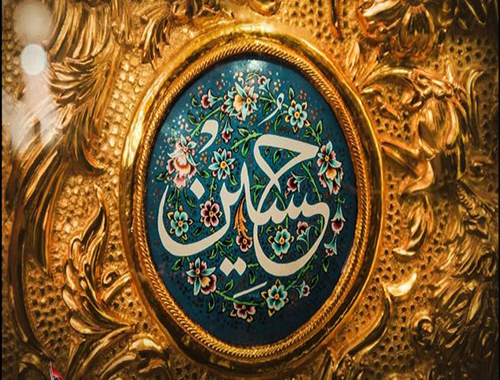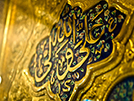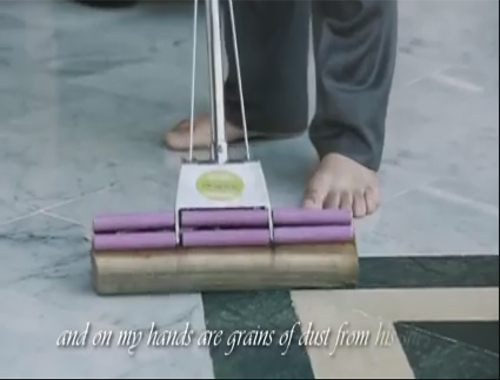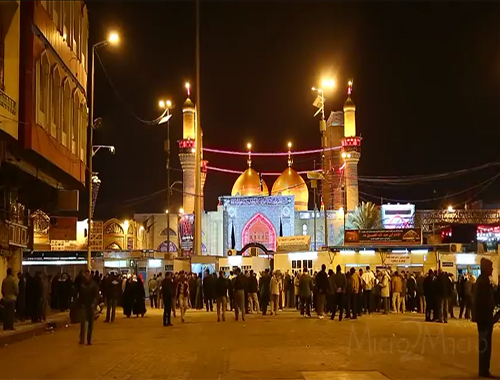
The uprising of Imam Hussein (A.S) has not only affected the Shiite Islamic societies, but also people of other faiths. We will review some of the important social and individual effects of this movement in the following paragraphs.
I–Social Effects
The uprising of Imam Hussein (A.S) and his companions caused a significant effect on the Islamic community of that time as well as those of later centuries. Some of the social effects are:
- Removal of Ignorance:
In many narrations and scripts for pilgrimages (Ziarat), the most important social message of this movement is considered to be "fighting against ignorance in the society and people's unawareness." The tyrants of that time had done everything to diminish the limits between right and wrong, and Imam Hussein (A.S) intended to redefine that for the society. This movement not only caused a general awareness in Islamic communities, but also enlightened the non-Muslim communities as well. For instance, some of the representatives of non-Muslim counties in Yazid's palace and some of the monks were deeply affected and eventually were guided on the right path. Indeed, the guidance which is a result of this uprising is still in place and leads many free men to the right path. Further, the martyrdom of Imam Hussein (A.S) and his companions proves the trueness of Islam. The first goal of the movement of Ashura is to bring about awareness in people of reasonable thoughts and behaviors. Obviously if this movement were based exclusively on emotions and taking advantage of people's emotions, then it would not encourage people to refer to their intellect, and it would not lead to general awareness in society.
- A General Uprising:
There were a number of uprisings after the movement of Ashura (both in that period of time and in later years) against oppression and tyranny of governments. Among them, the uprising of the people of Medina was one of the most important ones. Those who started the movement were not thinking about victory, but they decided to stand against tyranny as a social duty. There were other Islamic and non-Islamic movements in later years which had the teachings of Karbala in mind. Moreover, there were many religious and non-religious uprisings throughout history which had set their goal to fight against oppression. But most of them had affected their own period of time and not further; or they had taken advantage of people's emotions and were later forgotten. On the contrary, the event of Ashura was not limited to a few years after its taking place; it affected societies from the first day until the present time. Further, the motivation of this movement was divine, unlike other uprisings, and therefore, it calls upon people to rise up against oppression based on divine values and human principles.
- An Uprising Only for the Sake of Allah Almighty (S.W.T):
Obviously, the most important and ultimate effect of Imam Hussein's (A.S) uprising, whether socially or individually, is only to act for the sake of Allah Almighty (S.W.T). Imam Hussain (A.S) sacrificed all he had for Allah (S.W.T). He did not even consider victory at the battlefield as a condition to rise up against the oppressive government.
He told his companions and family on the night before the battle (the night of Ashura) that: "These people have animosity only for me; you can take advantage of the dark and leave. Know that whosoever stays here will be killed tomorrow." Furthermore, in the hardest condition of the day of Ashura, Imam Hussein (A.S) said: "This is easy for me because Allah is watching me."
II–Individual Effects
The uprising of Imam Hussein (A.S) affects every individual and constructs a practical path for social improvements. Some of the most important individual improvements are:
- To practice the commands of Allah (S.W.T) and to abandon sin:
Whoever benefits from the event of Ashura in any way will receive a sensation of obedience toward Allah (S.W.T) and a unique pleasure in submission to His command. Furthermore, even the act of committing a sin will appear ugly and unpleasant to that individual. However, the extent to which an individual leaves his sinful behavior depends upon his individual capacity for understanding the event of Ashura and Imam Hussein's (A.S) movement. This fact can be seen through individual experiences.
- Freedom:
After so many years, one of the quotes of Hussein (A.S) is still remembered – "If you do not believe in religion, at least be free in your world." This saying invites the whole world to practice freedom. The message of Hussein (A.S) continues, and his followers reject submission to oppression. Freedom from enslavement by tyrants or anyone except Allah (S.W.T) is one of the points of Imam Hussein's (A.S) revolution that can be used to realize the true values of Islam in this day and time. Hence, those who are in love with Hussein (A.S), no matter what religion they have, will try to free themselves from misfortune and obedience to anyone except Allah (S.W.T) by following Hussein's (A.S) path.
- Patience and strength:
Shiite Muslims and others who think about the events of Ashura have learned from the patience of Imam Hussein (A.S) such that in the most difficult situations of their lives, they remember their beloved leader. Therefore, they remain steadfast and patient in difficulties by remembering the difficulties Hussein (A.S) faced:
1. Surrounded in the hot desert without any water, and the river blocked for three consecutive days by the enemy.
2. The killing of his six-month old infant son with an arrow.
3. The killing and subsequent mutilation of his young son, who was the most similar in looks and moralities to Prophet Muhammad (PBUH&HP).
Hussein (A.S) never complained and did not stop thanking and remembering Allah (S.W.T). This was the only way his broken heart could be healed.
Human demands for the teachings of Ashura are not only still on the rise after many centuries, but they are increasing at a fast pace due to the age of technology. One reason is that as humans quickly satisfy their materialistic needs, they feel the need to improve their spiritual capabilities as well. Such development can help them in their lives and take them closer to the goal and purpose of life, that is, perfection and becoming closer to Allah (S.W.T). The event of Ashura, nowadays, has such a critical responsibility. If the people of 1300 years ago could not fully understand what Hussein Ibn Ali (A.S) had accomplished at that time, mankind today has more capability of understanding what Hussein's (A.S) movement was all about. They have more to ponder over at their own level of concentration. By comprehending the philosophy of his movement, humans may be able to do something about the present spiritual problems, such as their routine life and apathy toward their Creator and the Resurrection Day.
Furthermore, one could contemplate the ceremonies held for the martyrdom of Imam Hussein and Ahl al-Bayt (A.S) (the household of the Prophet (PBUH&HP)) by Shiite communities from a different point of view.
The human body is totally dependent upon its soul. Unlike the materialistic part of the body, the soul is everlasting. That is why the spiritual connection is deeper and more sophisticated than the physical or materialistic connection. But when does a spiritual connection happen between two distinct individuals? The answer is when they have the same spiritual/divine values. The connection between Shiite Muslims and the household of the Prophet (PBUH&HP) is a spiritual relationship, which is much deeper and stronger than any materialistic relationship. Therefore, the sad the tragic ceremonies that Shiite communities hold are absolutely logical, since their spiritual relationship continues to exist, even though the souls of those martyrs are not in this world. Allah (S.W.T) says: "Do not think of those who are killed in the Way of Allah as dead. Nay, they are alive with their Lord and receive sustenance from Him." (The Holy Quran, 3:169). Thus Shiites have a spiritual connection with their Imams (A.S) even centuries after their martyrdom, since they are alive and a spiritual relationship is independent of time and place.
For the same reason Shiites cry and commemorate the martyrdom of their beloved Imams (A.S). There is an advantage to their tears. Crying is a good means for increasing the love and care for a beloved one. So, crying and weeping is a result of love and improves that love in its nature. This way the people who sincerely love Allah (S.W.T) and Ahl al-Bayt (A.S) can escalate their spiritual level and get closer to perfection. It is true that weeping is not the only way to improve spirituality, but there lies a hidden point in weeping. The presentation of real love and the proof of a claim of a lover is demonstrated when the lover forgets every other one but his beloved. Indeed weeping fulfills this mission in its best way; it also clears one's mirror of heart and prepares the heart for being influenced by the best humans in all of creation.
Finally, the remembrance of Ashura and Imam Hussein's (A.S) movement should be undertaken with logic and wisdom at all times. There are many ideological and moral needs, which can be satisfied by understanding his movement, which can lead to improvement of the spiritual life of the human being, as well as avoid any possible superstitions.
Ref: Roshd magazine
 Ahlulbayt (A.S) - Islam Guidance
Ahlulbayt (A.S) - Islam Guidance









